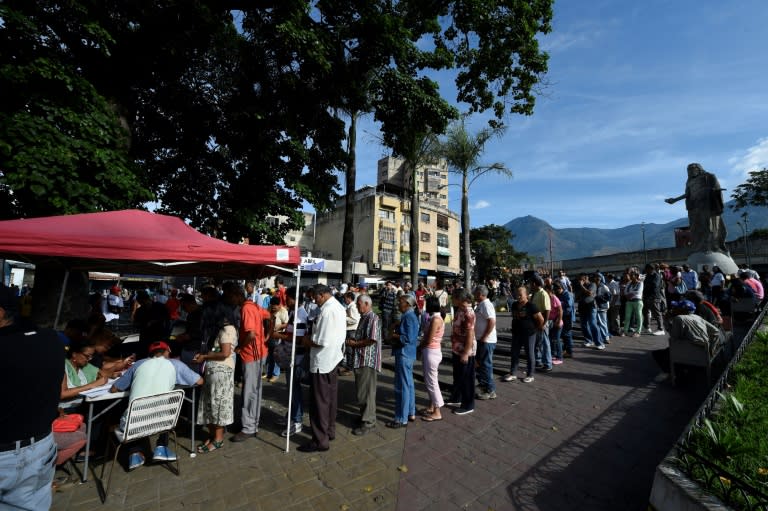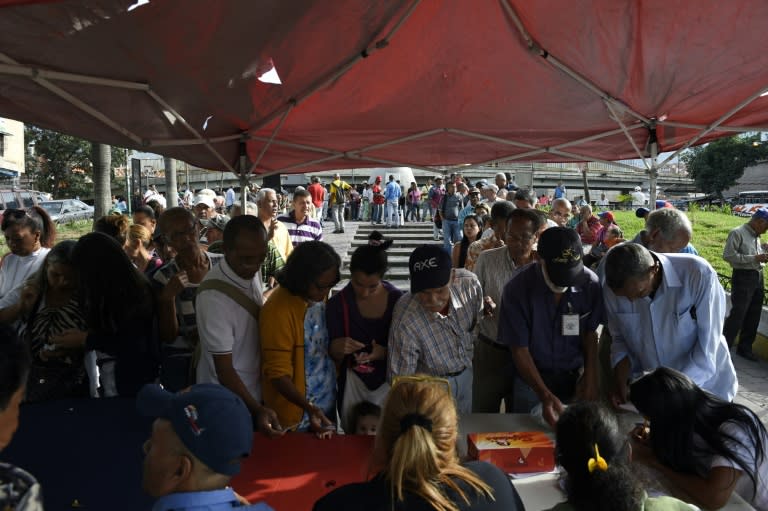'Red points' spark contention in Venezuelan vote
The sound of a Mexican folk ballad rings out from under a red canopy set up by the ruling party in a favela, or shantytown, in the Venezuelan capital. After voting in the election on Sunday, people come to register there in the hope of receiving prizes promised by the President Nicolas Maduro, who is seeking a new mandate despite an economic crisis. These so-called "red points" situated close to polling stations are at the heart of controversy in the election, with Maduro's opponents, Henri Falcon and Javier Bertucci, accusing the ruling party of using them to manipulate the vote. "In the red points they were engaging in shameless vote manipulation," said Bertucci. Maduro promised "a really good prize" for those who would vote and who possess a 'Carnet de la Patria', or electronic identity card needed to access social food handouts or receive government coupons. But the head of the electoral commission, Tibisay Lucena, on Saturday denied there would be any prizes for voting, and ruled that the "red points" must be at least 200 meters (yards) from polling stations. "I am looking for rewards, everyone wants to win prizes," said Maximino Ramos at another "red point" in Petare, just 50 meters from a polling center. The main opposition coalition, which boycotted the election, has accused the government of using the electronic cards, a system set up under Maduro, as a means of social coercion. Some 16 million people use the cards, but they are not required for voting. Under the faded red canopy in the strongly pro-Maduro favela of Petare, Magalis Torres encourages her neighbors to scan the code on the cards. "I am a Chavista one hundred percent, whether there is food or not I am a Chavista," said the 51-year-old woman who got up early to organize voting in her neighborhood and set up the "red point". - 'Economic war' - Like Magalis, other local community leaders appeal to voters. "To scan your cards, you have to have voted!" said one woman at another red point in Petare. Feliciano Tovar, 62, said that no one forced him to come to a "red point." "I came voluntarily," he said. By voting he hopes that "the country will emerge" from a "critical" situation that forced one of his three daughters to emigrate. "The two others want to leave also, I will be all alone," he said. Luis Rojas, a 66-year-old pensioner who receives government coupons, said he agrees with Maduro, who said the crisis is due to "an economic war" being staged by a group of countries. Manuel Rodríguez, a 67-year-old lawyer, came out to vote and then went immediately to a "red point." He believes that the opposition boycotted the elections because all its leaders want to be president. "In the opposition, personal desires weighed more than a real desire to get Maduro out and that's what the people see."



